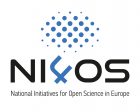The real success of good data management is not just that researchers begin to properly organize the data they create, but perhaps this is the first step. Good data management is much more than that. Rather, it is a way of thinking that helps researchers to reap the benefits of their work and the rewards of their results and efforts. On the other hand, it is also important for funders, as this can increase the return on investment in research. Achieving this is not easy at all. That is why FAIR data principles were invented.
What does FAIR mean?
To be Findable:
- F1. (meta)data are assigned a globally unique and eternally persistent identifier.
- F2. data are described with rich metadata.
- F3. (meta)data are registered or indexed in a searchable resource.
- F4. metadata specify the data identifier.
To be Accessible:
- A1 (meta)data are retrievable by their identifier using a standardized communications protocol.
- A1.1 the protocol is open, free, and universally implementable.
- A1.2 the protocol allows for an authentication and authorization procedure, where necessary.
- A2 metadata are accessible, even when the data are no longer available.
To be Interoperable:
- I1. (meta)data use a formal, accessible, shared, and broadly applicable language for knowledge representation.
- I2. (meta)data use vocabularies that follow FAIR principles.
- I3. (meta)data include qualified references to other (meta)data.
To be Reusable:
- R1. meta(data) have a plurality of accurate and relevant attributes.
- R1.1. (meta)data are released with a clear and accessible data usage license.
- R1.2. (meta)data are associated with their provenance.
- R1.3. (meta)data meet domain-relevant community standards.
Key element of FAIR:
One of the most important parts of these principles is data sharing and re-use not only for humans but also for machines. Machines must be able to find and use this data or any digital object which is relevant to the research. This will ensure that the data which was created today can be used in the long term.
Remember that:
- FAIR is a set of principles, not a standard.
- Not all data has to be made open. Data can be restricted and still be FAIR.
- Keep in mind: “As Open as Possible, As Closed as Necessary”
For further information:
- https://vidensportal.deic.dk/en/FAIR
- https://www.openaire.eu/how-to-make-your-data-fair
- https://www.cessda.eu/Training/Training-Resources/Library/Data-Management-Expert-Guide/1.-Plan/FAIR-data
- https://ec.europa.eu/research/participants/data/ref/h2020/grants_manual/hi/oa_pilot/h2020-hi-oa-data-mgt_en.pdf
